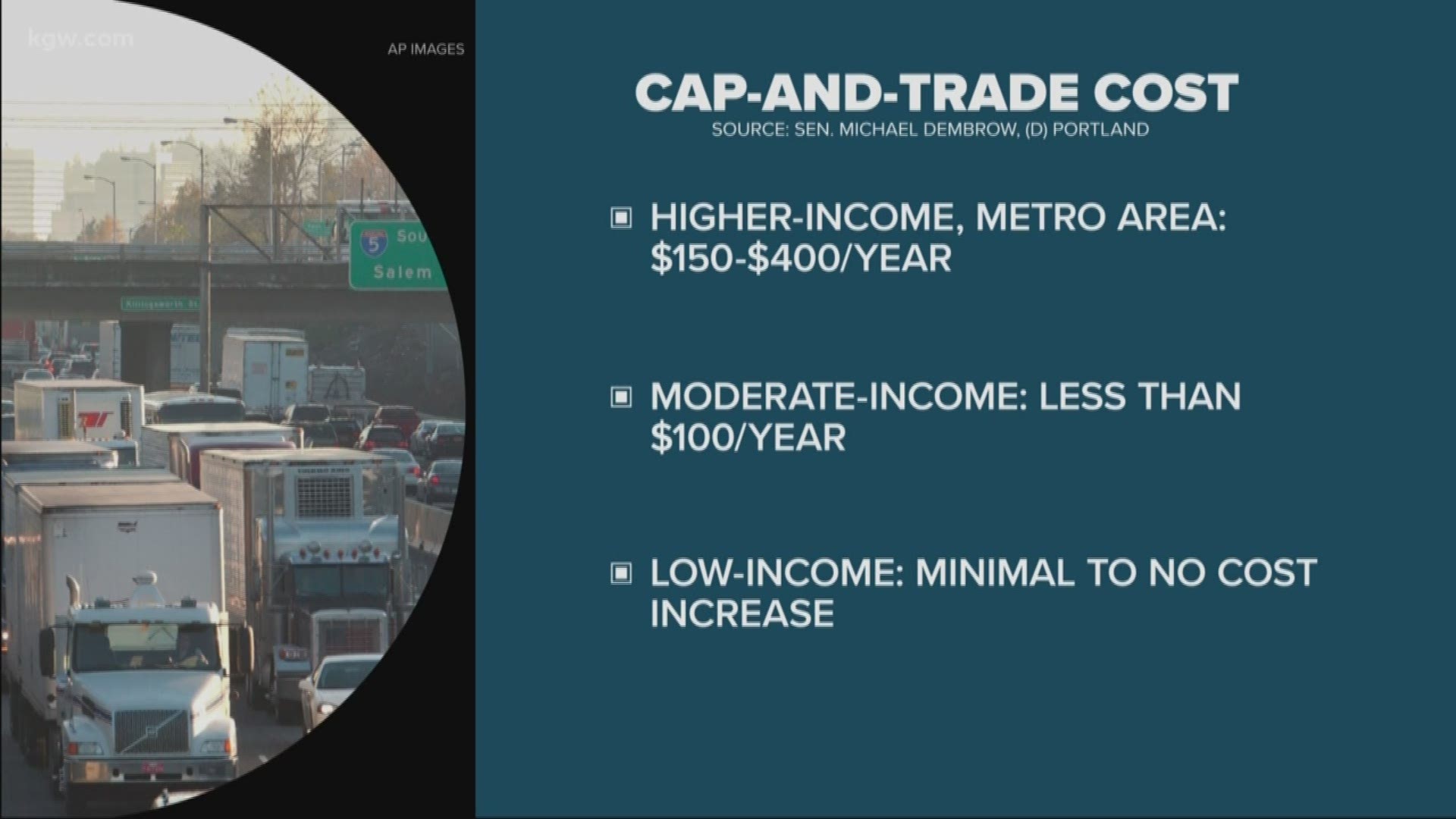SALEM, Ore. — As Oregon Democrats and Republicans work their way through the 2020 short session, the two parties have very different answers when it comes to what cap and trade will cost Oregonians.
Democrats said the cost to Oregonians will be based on gasoline purchases as well as natural gas and electricity consumption.
They said if cap and trade is passed, higher-income households in the Portland metro area may pay anywhere between $150 and $400 dollars more per year. Moderate-income households might pay less than $100 dollars more per year. Low-income households aren't expected to see much of a cost increase at all.
Democrats said gas prices are expected to go up by 20-cents in the next two years and then increase one to two cents each year after.
But the gas increases are only happening in the Portland metro area until 2025, when it will be phased into other places in western Oregon.
To make up for this, Democrats have introduced another bill that gives a family of four making less than $65,000 a year tax credits for buying gasoline. It also lets loggers and farmers get a refund on gas.
Democrats also said they don't expect any indirect costs on goods and services because of the increased gas prices.
As for other cost increases, Democrats told us natural gas will go up $50 the first year, then gradually after that. Low-income households are exempt from this.
Democrats said no one is supposed to see electricity rates go up until 2030, when it will go up slightly.
When we asked Republicans about the cost, they said they have no idea where Democrats got these numbers.
They also said the Legislative Revenue Office cannot do a proper analysis on cap-and-trade. Specifically, the office can’t look at cost impacts on different regions and income levels.
Republicans are also disputing Democrats' claims that increased gas prices will not result in any indirect costs for good and services, with Senate Republican policy analyst Justin Brecht calling it "highly suspicious."
Brecht said Republicans have revenue impact statements from similar carbon bills that show indirect cost increases.
Previously, Republicans have quoted the cost estimate for last year's cap-and-trade bill as what they again expect it to cost this year. That estimate was $650 more per year for the average family of four.
Republicans said they are using last year's estimate because they cannot get a new cost analysis from the Legislative Revenue Office.

